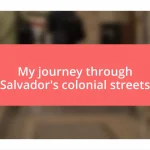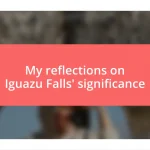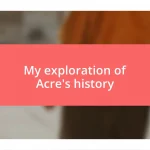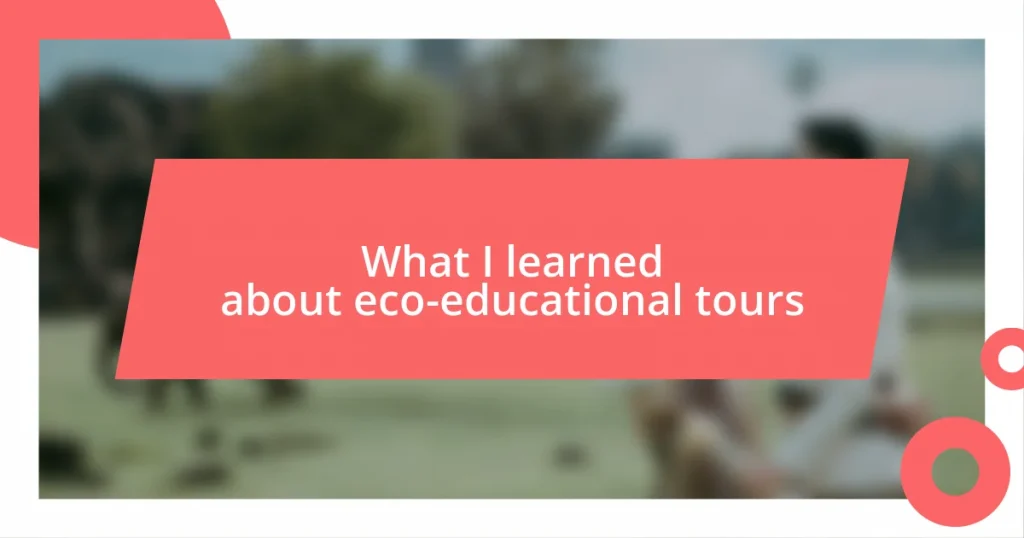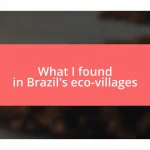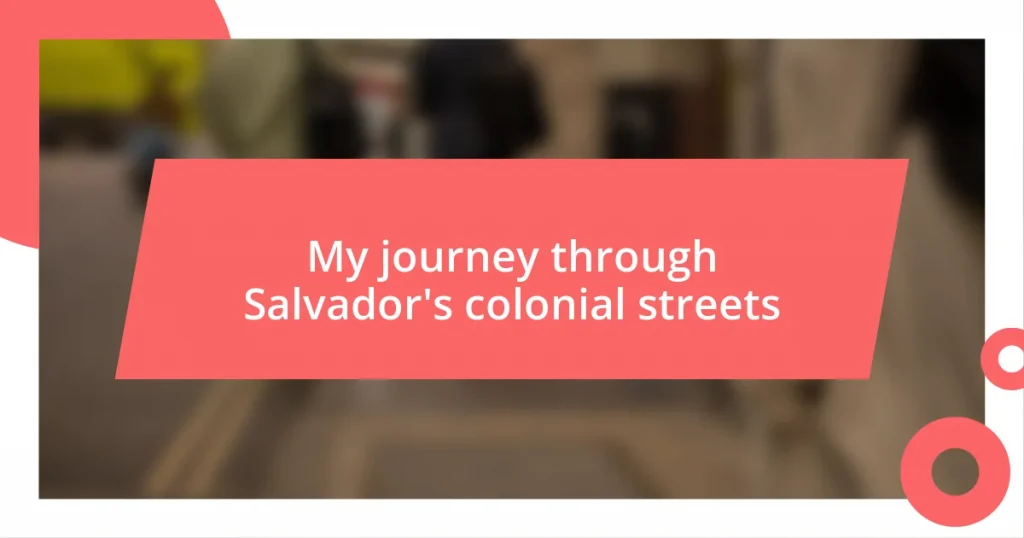Key takeaways:
- Eco-educational tours foster a connection with nature and inspire participants to advocate for environmental conservation through hands-on experiences and storytelling.
- These tours empower individuals by cultivating a sense of community and shared responsibility for the planet, enhancing collaboration among travelers.
- Effective planning, including destination research and understanding local conservation efforts, significantly enriches the overall experience of eco-educational tours.
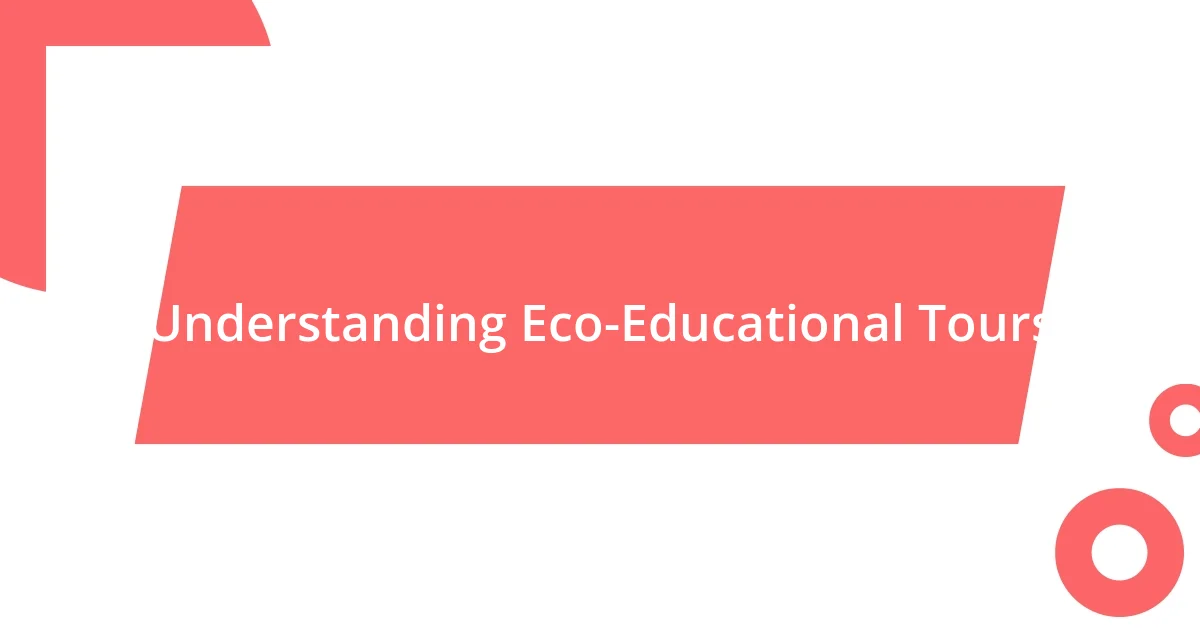
Understanding Eco-Educational Tours
Eco-educational tours are more than just a travel experience; they immerse individuals in unique environments while imparting knowledge about sustainability and conservation. I remember wandering through a lush rainforest, listening to a local guide share stories of the ecosystem’s delicate balance. It struck me how each plant and creature plays a role in our planet’s health—who knew a tiny ant could be so vital?
These tours often create a sense of connection with nature that we might miss in our daily lives. Have you ever felt that rush of wonder when spotting a rare bird or learning about traditional farming practices? I certainly did, and it sparked within me a desire to advocate for the environment. It’s fascinating to see how these firsthand experiences can reshape our perspectives and inspire actionable change.
Moreover, eco-educational tours frequently encourage collaboration with local communities. One moment that resonates with me was participating in a beach cleanup alongside local children. The joy on their faces as they learned the importance of keeping their surroundings clean was incredibly rewarding. It reinforced the idea that these tours aren’t just about education; they empower us to become stewards of the earth and foster a deeper appreciation for diverse cultures and ecosystems.
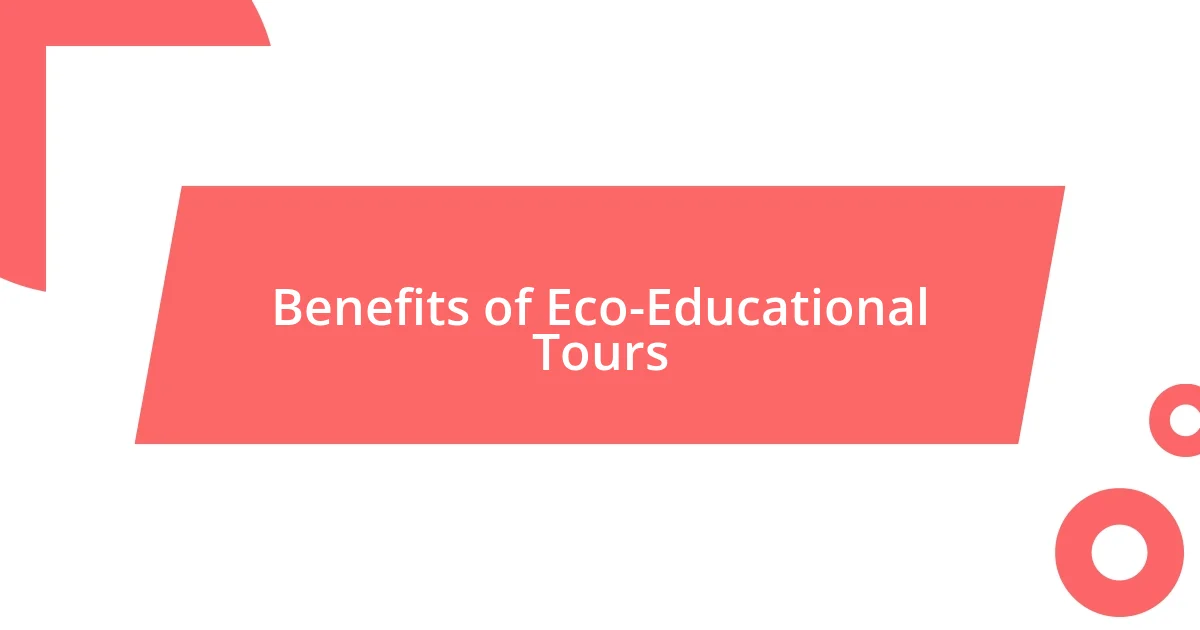
Benefits of Eco-Educational Tours
Experiencing eco-educational tours offers invaluable insights into environmental issues and conservation efforts. I distinctly recall attending a workshop on sustainable agriculture during one of my trips. The hands-on experience of planting seeds and listening to local farmers discuss organic practices left me inspired. It was more than just an educational session; it felt like I was part of a bigger movement, amplifying the voices of those dedicated to nurturing the earth.
What’s particularly compelling about these tours is the opportunity to witness the tangible impact of our environmental choices. I vividly remember visiting a coral reef restoration project. As I snorkeled amidst the vibrant marine life, each colorful fish reminded me of the significance of preserving our oceans. It was eye-opening to witness the delicate balance of ecosystems and how our actions, both positive and negative, ripple through these natural systems.
Lastly, eco-educational tours often cultivate a profound sense of community among travelers. I made lasting friendships with fellow participants during a rainforest expedition, bonding over our shared commitment to conservation. Engaging in group activities, like tree planting, allowed us to connect not only with nature but with one another. This camaraderie fueled my passion for ongoing environmental advocacy and highlighted how collective efforts can lead to meaningful change.
| Benefit | Description |
|---|---|
| Enhanced Knowledge | Participants gain first-hand experience and insights into environmental sustainability and conservation methods. |
| Empowerment | These tours inspire individuals to take action, fostering stewardship for the planet within their communities. |
| Sense of Community | Engaging in group activities creates lasting connections, encouraging a shared commitment to environmental advocacy. |
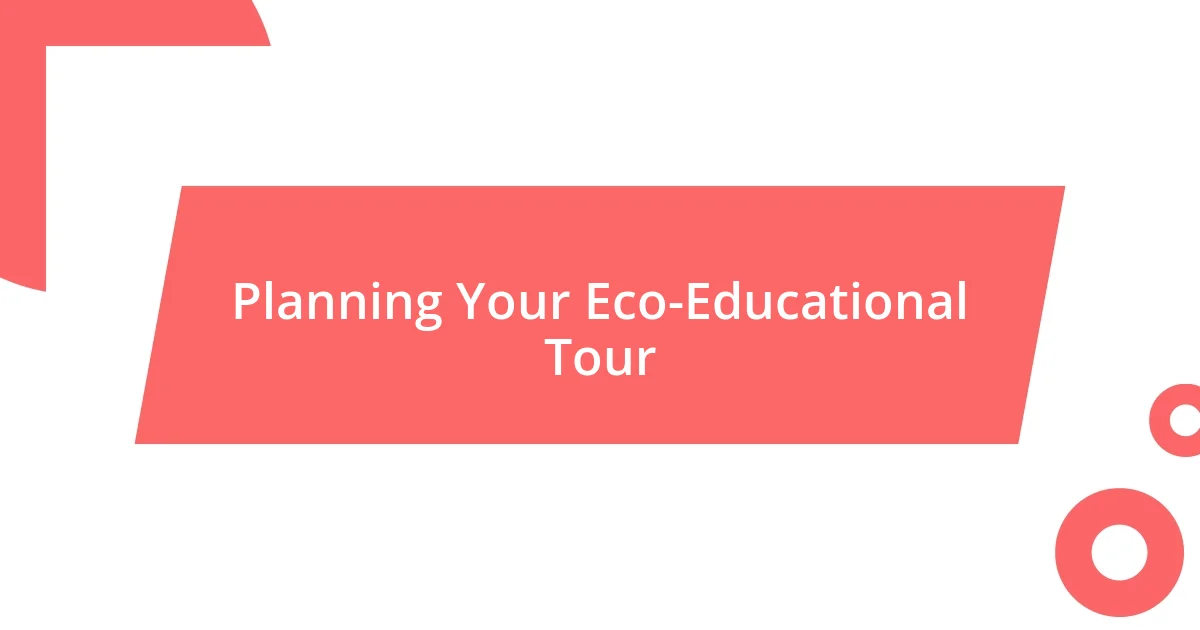
Planning Your Eco-Educational Tour
Planning your eco-educational tour involves several thoughtful steps to ensure a meaningful experience. I remember pouring over brochures and online reviews, trying to find the perfect destination that aligned with my interests in wildlife conservation. It’s crucial to consider not just the location, but also the activities offered and the expertise of the guides. A thorough background check on the tour operators can significantly enhance your adventure.
Here are some key points to focus on while planning:
- Research Destinations: Look for places renowned for their biodiversity and conservation efforts.
- Evaluate Tour Operators: Choose companies with strong ethical practices and positive reviews from past participants.
- Customize Your Experience: Think about personal interests—whether you prefer rainforest hikes, marine life interactions, or agricultural workshops.
- Check Group Sizes: Smaller groups can lead to a more engaging and personalized experience.
- Understand Environmental Impact: Look for tours that emphasize sustainability and benefit local communities.
Crafting each detail contributes to a richer, more impactful journey. I once found myself completely captivated by the storytelling of a local guide during an eco-tour; it not only deepened my appreciation for the area but also ignited a passion in me to advocate for similar efforts back home. Planning for these intangible moments can truly transform your connection to the environment.

Selecting the Right Destination
Selecting the right destination for your eco-educational tour can truly shape the entire experience. I remember grappling with choices, overwhelmed by breathtaking options like vibrant rainforests and remote coral reefs. Have you ever felt that rush when you land on a place that not only captivates your interest but also resonates with your values? Trust me, the right destination makes all the difference.
When I finally settled on a coastal region known for its marine conservation efforts, it felt like destiny. I was thrilled to learn about the local practices that protect delicate ecosystems. This hands-on approach to conservation opened my eyes to the unique relationship between the community and their environment. Choosing a place with strong community ties not only enriches your understanding but also makes your visit more impactful.
One essential factor is to identify what matters most to you—are you drawn to wildlife, forests, or oceanic environments? Reflecting on my own preferences led me to a tour that perfectly combined hiking and marine excursions. I was amazed at how much more fulfilling it was to connect with nature in ways that aligned with my interests. What are your passions? Aligning your destination with your values will undoubtedly create a more meaningful journey.

Engaging Participants in Learning
Engaging participants in learning during eco-educational tours is pivotal for creating lasting memories. I vividly remember a moment when our guide invited us to actively participate in a tree-planting activity. This hands-on experience not only sparked joy but also instilled a sense of ownership and responsibility towards the environment. Don’t you think contributing directly to conservation can deepen your connection to nature?
Another compelling way to foster engagement is through storytelling. During one tour, a local resident shared their family’s multi-generational commitment to sustainable farming. Listening to their personal journey of resilience and passion for the earth was far more enriching than any textbook lesson I could have read. It made me wonder—how can we better harness these powerful narratives to inspire future learners?
Lastly, I’ve found that incorporating interactive elements, like group discussions or challenges, excites participants and encourages collaboration. On one trip, we were divided into teams to identify different plant species, adding a playful competitive edge to the learning experience. The moment I saw everyone’s enthusiasm, I realized that active engagement not only enhances knowledge but also creates a shared bond among participants. What strategies do you think could keep learners captivated and excited about our planet?

